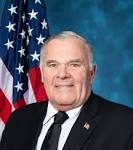By John Krull
TheStatehouseFile.com
John Krull, publisher, TheStatehouseFile.com
INDIANAPOLIS – Terry Small makes a simple point.
![]() Small, a learning specialist, says the human brain processes information in specific ways. It has a bias, he explains, toward questions. Questions stimulate the mind and linger much longer than statements or lectures do.
Small, a learning specialist, says the human brain processes information in specific ways. It has a bias, he explains, toward questions. Questions stimulate the mind and linger much longer than statements or lectures do.
As Small says this, Lori Desautels, a Marian University education professor, and Nikki Woodson, Washington Township Schools superintendent, nod their heads and then begin chiming in. They point out equally simple ways to make it easier for people – young, middle-aged and old – to learn new things.
They say, for example, that the brain generally runs in a cycle and can focus on one thing, however interesting, for only a limited period of time. That time can be calculated by using the person’s age and adding the number to it – so an 8-year-old boy’s cycle would be about 10 minutes. The maximum, regardless of age, is 20 minutes.
That clock, though, can be reset with an easy break in routine. Standing up or doing a neck stretch can buy the person another 10, 12, 15 or 20 minutes of focused attention.
Small, Desautels and Woodson are guests on the radio show I host.
As they talk, I can’t help but think how little relationship the small, practical but likely effective suggestions they have for improving education have with the raging arguments we have about education in this state and country.
When we discuss education as a matter of politics and policy, we talk about schools, we talk about scores, we talk about parents and we talk about money. Rarely, do we seem to talk about basic things we could do to make it easier for students to learn.
Partisans on both sides claim they are student-focused and just want what is best for the state’s children.
But one only has to take a look at a few of the charges and counter-charges that swirled after the Associated Press discovered that former state Superintendent of Public Instruction Tony Bennett’s staff left damaging emails on the computers that current Superintendent Glenda Ritz’s staff now uses. In the skirmishing that followed, Republicans defended Bennett and attacked Ritz while Democrats attacked Bennett and defended Ritz.
There was a lot of talk about Tony and Glenda and how put-upon and misunderstood they both were.
And very little discussion about the state’s students.
One has to wonder what we might be able to accomplish if we took some portion of the time, money and energy that we spend fighting with each other over vouchers or school grades or any number of other hot-button and divisive education issues and devoted it instead to small ways to change students’ experiences for the better.
Nor is this dynamic confined to education. All over the country we see one issue after another – health care, taxes, abortion, guns, etc. – in which the true believers on both sides of the question are more concerned about winning a fight than they are about finding a solution.
In fact, both of our political parties now resist the very idea of taking practical steps toward solving problems – what we used to call pragmatism. Any deviation from ideological purity in pursuit of a practical solution earns one a disparaging moniker – DINO (Democrat In Name Only) or RINO (Republican In Name Only).
Imagine what we might do if we approached our challenges with health care by saying that we want Americans to have health care and we want to keep costs low and asking what’s the best way to achieve both ends? Or, in regard to guns, if we asked how we preserve the rights of gun owners and yet still find a way to have fewer of our citizens killed?
More to the point, how do we get the focus back on solving a problem rather than figuring out a way to stick it to the folks on the other side?
Small, Desautels and Woodson argue persuasively that there’s a lot we can do to improve education that doesn’t have anything to do with ideology. Let the kids stand up every now and then and move around. Figure out what their interests and concerns are and build on that. Ask questions instead of delivering pronouncements.
It seems to me that those lessons could be applied in a lot of other areas.
What do you think?
John Krull is director of Franklin College’s Pulliam School of Journalism, host of “No Limits†WFYI 90.1 FM Indianapolis and publisher of TheStatehouseFile.com, a news website powered by Franklin College journalism students.





